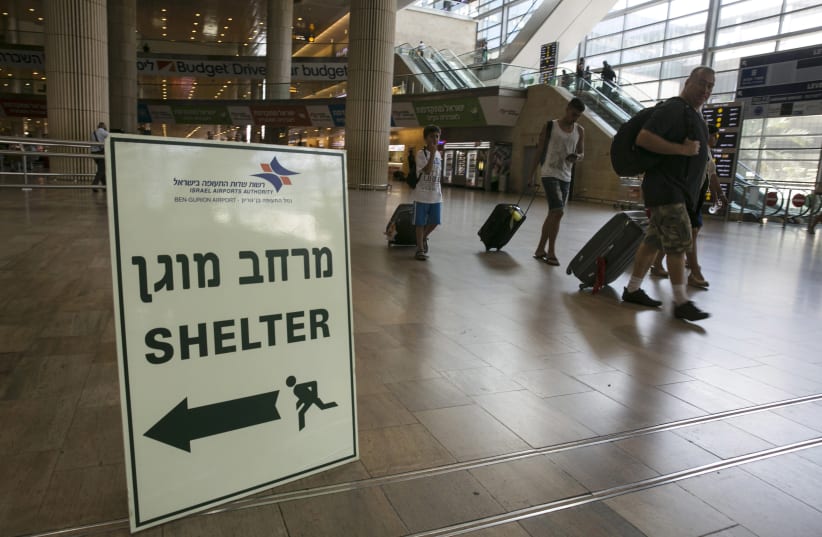The military campaign in Gaza has placed Israel’s travel industry in “one of the worst situations Israel has had in a long time,” Ziontours Jerusalem CEO Mark Feldman told The Jerusalem Post.
“COVID wasn’t enough for us?” Feldman groaned. “All the foreign air carriers have canceled flights to Israel. Even in previous wars, that didn’t happen. There’s an incredible amount of panic, and a feeling of abandonment.
Feldman went on to stress that “From a professional standpoint, we had a big step forward with the reopening of the local economy due to Israel’s successful vaccination campaign, but now we’ve gone three steps backward. Whatever talk there was about bringing groups of tourists into the country during the next few months has been completely abandoned.”
Just three weeks ago, Israel’s Tourism Ministry announced a multi-pronged plan to restart inbound tourism into Israel after travel was wiped out by the pandemic. The ministry had planned to gradually increase the number of tourists that would be allowed into the country while launching ambitious marketing campaigns in key cities. That is all on hold now.
Adding fuel to the fire, the Royal Caribbean cruise line said over the weekend that it was canceling its new line cruises from Haifa to Greece and other destinations indefinitely.
“Due to the unrest in Israel and the region, Odyssey has not been able to complete the preparations required to operate from Haifa as planned. Given this and the uncertainty of when things will return to normal, the industry’s newest ship will now spend its inaugural season in Florida,” the company said in a statement.
The company said in February that it had big plans to launch operations in Israel this summer and had framed the decision as a vote of confidence in Israel’s tourism market. The maiden voyage, of a brand new ship that the company had designated specifically for Israel, was scheduled to leave within the next few weeks.
“This is a very cowardly reaction,” Feldman said. “The whole point of the new line was that it was designed for Israeli tourists, not foreign visitors. And that means that once the fighting is over, Israelis will travel again. In my opinion, this was a very myopic perspective on the situation.”
Meanwhile, Feldman said, the panic caused by the security situation will remain long after the fighting dies down. “I keep telling people that we’ll probably have a ceasefire in the near future, and they are saying, no, this is going to be a third intifada. There is a lot of talk in the media about lynchings, and this is a word that most tourists have never heard in relation to Israel. They have heard about riots, about uprisings, but the word ‘lynch’ is much scarier for people. After this all ends, a major effort is going to be needed to change the narrative.”
In addition, Israelis currently abroad have yet another reason to put off returning home, Feldman said. “Add this to the cost of having to do additional COVID-19 tests when they fly, the quarantines, and all of the other challenges, and people just don’t want to get caught up in all this,” he said.
Meanwhile, Israel’s internal tourism market is in a holding pattern as the situation develops. Many events last week were canceled on short notice, but most organizers haven’t made long-term cancellations. In Tel Aviv and other cities in the country’s center that have been the target of rocket barrages, popular nightlife hot-spots are largely empty.
Hotel occupancy in Jerusalem for the Shavuot holiday Sunday night and Monday was reported to be low, but not to the point of catastrophe.
“Occupancy is not at the high levels that we would normally expect for the Shavuot holiday, but there wasn’t a rush of last-minute cancellations or anything like that,” said a spokesperson for the King David and David Citadel hotels in Jerusalem.
